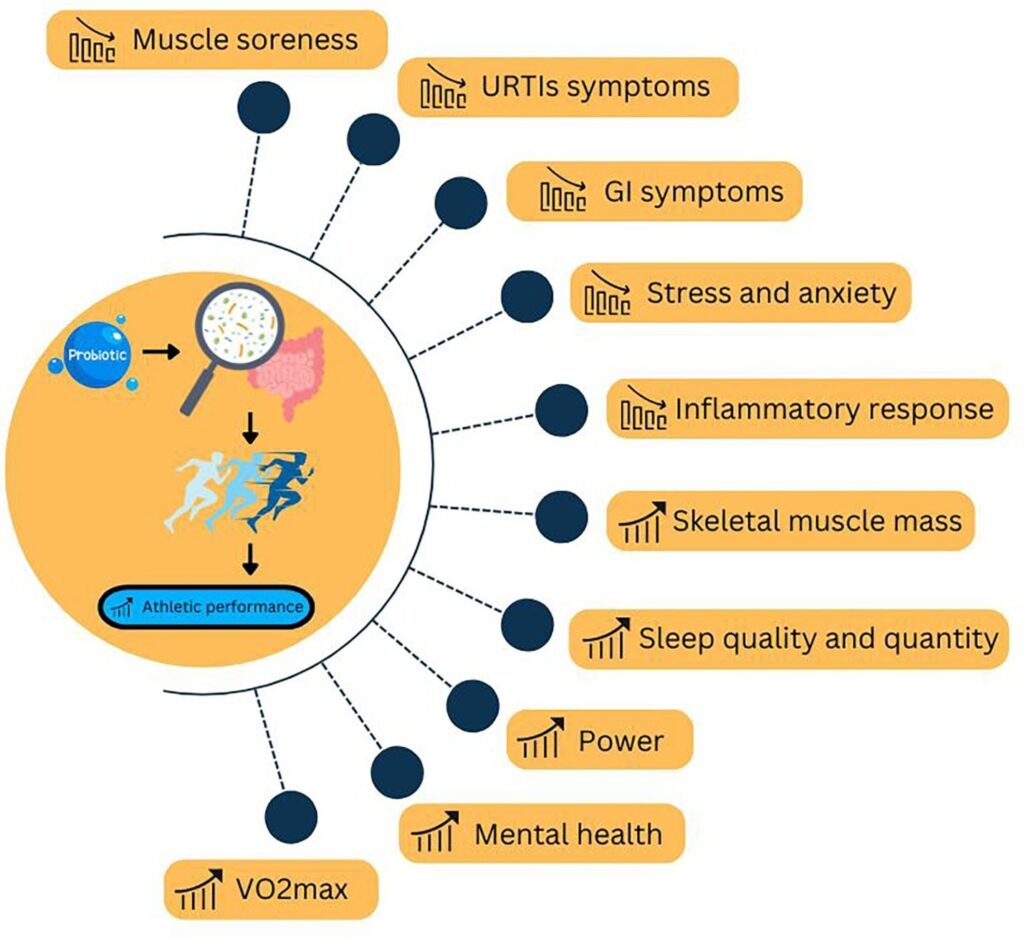
In a comprehensive review published in the journal Frontiers in Nutrition, scientists explore the potential of probiotics to enhance athletic performance. The study delves into how specific strains might help athletes recover faster, perform better, and maintain overall health. However, the findings also highlight significant gaps in research that need to be addressed.
The review, titled “Probiotic supplementation for optimizing athletic performance: current evidence and future perspectives for microbiome-based strategies,” synthesizes current scientific knowledge on the relationship between probiotics, the gut microbiome, and exercise performance. It aims to provide athletes, trainers, and medical professionals with data-driven insights to inform training and recovery strategies.
Understanding the Role of Probiotics in Sports
The potential benefits of probiotics for athletes are multifaceted, according to the review. These include reducing inflammation, enhancing gut barrier function, and altering metabolic pathways. However, the effects are highly specific to the probiotic strain, dosage, and type of sport. Not all studies show positive results, suggesting that while probiotics may benefit some athletes, universal recommendations are premature.
Currently, there is insufficient evidence to claim that probiotics are essential for preventing injuries or consistently improving performance. The research is highly strain-specific and context-dependent, emphasizing the need for standardized and generalizable studies, particularly in resistance-based sports.
The Gut Microbiome and Athletic Performance
In the quest for marginal gains, elite athletes have long focused on training and nutrition. However, the gut microbiome, a critical component of physiological well-being, has often been overlooked. This complex ecosystem plays a vital role in nutrient absorption, immune function, and inflammation regulation, all crucial for athletic success.
Recent research aims to leverage probiotic supplements to address common athlete issues such as gastrointestinal distress in endurance runners and upper respiratory tract infections that can hinder performance.
Review Findings: Sport-Specific Insights
Endurance Athletes
Endurance athletes, such as runners and cyclists, have been the primary focus of gut microbiome research. The review indicates that probiotics can alleviate exercise-induced gastrointestinal distress, a common issue in this group. For instance, multi-strain probiotic supplements have shown significant reductions in GI symptoms.
Specific strains, like Bifidobacterium lactis BL-99, have been linked to enhanced performance metrics such as lipid metabolism and VO₂ max. However, results are mixed, with some studies reporting no significant effects. The benefits are thought to stem from reduced systemic inflammation and oxidative stress, though not all studies support these findings.
Intermittent-Exercise Athletes
For athletes in sports like soccer and basketball, probiotics have shown promise in reducing upper respiratory tract infections, thereby minimizing missed training and competition. A six-week synbiotic intervention in football players reduced URTI symptoms and improved heart rate metrics, although the physiological implications of increased HRmax remain debated.
Probiotics may also enhance mental health, with studies showing reduced stress and anxiety in athletes like badminton players. However, findings are inconsistent across different sports and performance metrics.
Resistance Athletes
Resistance athletes, such as bodybuilders, are underrepresented in probiotic research. Limited studies suggest that probiotics like Bacillus coagulans can improve amino acid absorption and leg press power. However, the data are sparse and inconsistent, necessitating further investigation into factors like dosage and supplementation duration.
Wheelchair Athletes
Wheelchair athletes face unique challenges, and research on probiotics in this group is limited. Some evidence suggests reduced inflammation and improved gut microbiome diversity, but results are mixed, with no consistent improvement in gastrointestinal symptoms.
Conclusions and Future Directions
Probiotic supplementation holds promise as a strategy for athletes, but it is not a one-size-fits-all solution. Benefits are highly strain-specific, dose-dependent, and sport-specific. While endurance and intermittent-sport athletes may see improvements in gut health and performance, evidence for strength and power sports is lacking.
The review underscores the need for robust, standardized research to validate the efficacy of probiotics in sports. Future studies should document supplementation protocols and explore mechanisms like the gut-brain and gut-liver axes.
In conclusion, while probiotics offer potential benefits, they should not be viewed as a guaranteed or universal performance enhancer. More conclusive evidence is needed to integrate probiotics effectively into athletic training and recovery plans.





